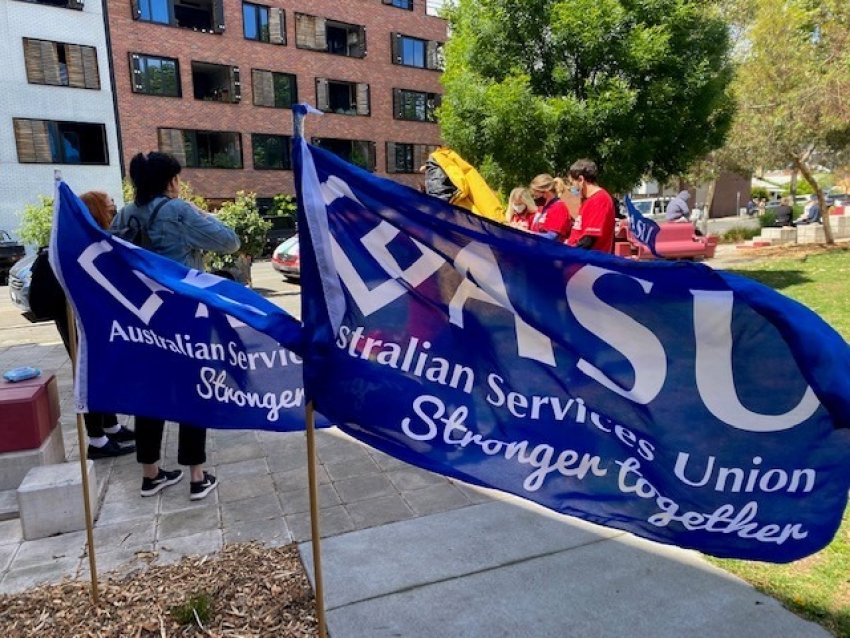
Workers in the housing and homelessness sector have one of the hardest jobs. They are one of the most undervalued and unappreciated workers given that they are expected to solve a number of complex problems.
The pay classification for these essential community services workers, at about $33 an hour, is 1–2 points lower than their peers.
While they support the community, insecure contracts and casualisation are leaving them vulnerable to housing insecurity themselves.
The role of housing and homelessness workers has become more complicated due to decades of government neglect of the housing system.
I have worked in housing case management and have seen the level of exploitation by both the government and the bosses.
The cuts to services across the social and community services sector, including mental health, drug and alcohol, health and early intervention supports, contributes to the complexity.
These cuts mean that housing and homelessness case managers have to utilise their skills to work across multiple fields, instead of concentrating on their main job; to find safe and affordable housing.
Workers also have to deal with occupational health and safety risks associated with this work.
The lack of public or affordable housing stock, means that housing and homelessness workers in Victoria are forced to turn away around 260 people looking for housing support every day, a factor that contributes to their own chronic stress.
Homelessness services workers have also been at the frontline of the pandemic response.
The Victorian government announced the formation of the Homelessness Emergency Accommodation Response Teams (HEART) in June last year. HEART workers were to provide intensive outreach support to people experiencing long-term homelessness.
But the program was fraught with issues and severely underfunded. Instead of providing safe and secure accommodation, rough sleepers were given temporary shelter in hotel accommodation.
In many places, particularly regional areas, not everyone was housed. Many single men were out on the streets within a matter of weeks. Due to the scheme’s rushed roll-out, there were safety concerns around occupational violence and they continue to pose a threat to workers.
Another ill-thought out scheme, Jobs Victoria, recruited students, or those who lost their jobs due to COVID-19, to apply to become HEART workers and paid at a level 3 classification. This meant that experienced and skilled workers were being replaced by unqualified, inexperienced and poorly-paid staff.
This paved the way for the government’s Homelessness-to-Home job contracts, part of its “Victoria’s Big Build” scheme. People who were allocated motel accommodation from March to December last year became eligible for a package, including a house, tenancy case manager and access to a mental health worker for 18 months.
But the competitive nature of the tendering processes has meant that the workers have suffered in these new job arrangements. Short-term contracts of 12–18 months are being offered with classification rates at exploitative pay rates: They are paid nearly $10–$15 less than other community sector workers.
Vulnerable clients require skilled, consistent and experienced support workers to assist in their recovery. But these workers are difficult to retain because of low wages.
Short-term contracts are increasingly becoming the norm across the sector, leaving many workers in limbo. Workers need and deserve the security of permanent contracts that value and acknowledge the challenges that come with the work.
Australian Services Union (ASU) members at Launch Housing went on strike on October 25 to demand that housing and homelessness workers are paid properly for their work. They want a fair deal, including a classification review and the right to genuine consultation.
[Angela Carr is a Geelong-based community services worker, an ASU delegate and housing and campaigns against homelessness. She is running for the Socialist Alliance for the Victorian Senate.]